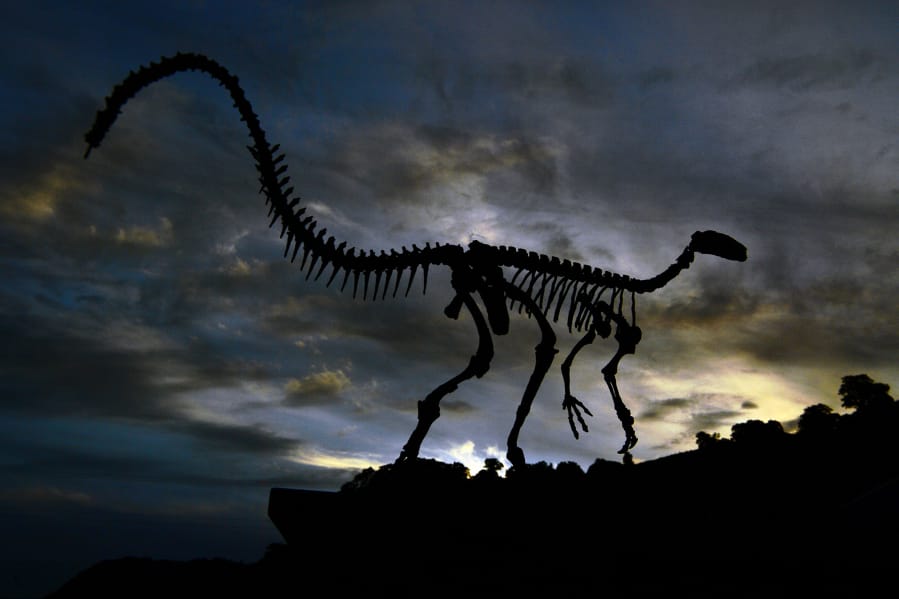An asteroid striking the earth 66 million years ago caused the mass extinction of dinosaurs and other animals, a new study has confirmed.
The study rejects a competing hypothesis attributing the phenomenon to volcanic eruptions in southern India.
According to the study published in the journal Science, at least half of the massive volcanic activity, along with the ensuing release of gases, in the Deccan region in India occurred well before the mass extinction.
An international team investigated deep sea drill cores taken from the North and South Atlantic and the Pacific oceans, focusing on the period at the boundary between the Cretaceous and the Palaeogene periods 66 million years ago.
Around 75 percent of all the species present on earth at the time died out.
For their study, the researchers made use of reconstructed changes in temperature, fossil finds and models of the carbon cycle.
The asteroid impact off Mexico’s Yucatan Peninsula can still be discerned in the shape of a crater almost 125 miles in diameter.
The event could have generated tsunamis and bush fires, as well as releasing large quantities of sulphur.
U.S. researchers evaluating a drill core from the impact crater recently supported this hypothesis.
While the volcanic activity in the Deccan was in fact responsible for a brief warming phase 200,000 years before the mass extinction, it had no long-term effect on life and the climate, according to German geologist Andre Bornemann, a member of the team.
However, volcanic activity after the mass extinction could have affected how life was formed subsequently, the authors of the study wrote.



